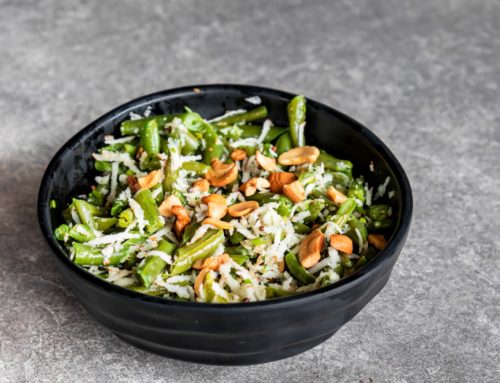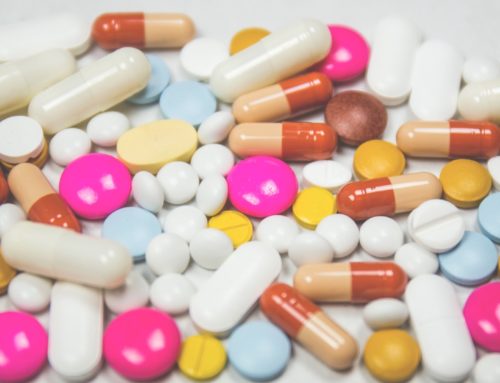They say that the road to health is paved with good intestines — or, something along those lines — and as far as overall well-being is concerned, they would be absolutely right!
With as many microbes in the human body as all the stars in the milky way times 1000, the community of living organisms that resides within our ears, between our toes, and for the most part inside of our gut, has more control over the state of our well-being than most people have ever thought to give it credit for.
Referred to as the microbiome, we are practically carpeted in a collaborative system of bacteria, archaea, viruses, and fungi, that have evolved with us since the beginning of our existence. They exist in every corner and crevice of our bodies, and they make up an unbelievable 99% of the total genetic information we contain.
Not only is there a direct connection between the maintenance of a healthy microbiome and the strength of our immune system, but the organisms present within our gut help to facilitate all aspects of our welfare — from supporting the neurotransmission of serotonin via the brain-gut-axis, to controlling the process of digestion from start to finish, to moderating our risk of developing chronic and — far too often — fatal disease (1).
In light of the on-going Coronavirus pandemic, scientific research has turned its attention to addressing the factors that may or may not be to blame for the significantly varied manifestation and degree of severity of the virus that we are seeing across all populations. Perhaps more so than ever before, the role and importance of cultivating the body’s natural defense against sickness is emphasized, bringing the relevance of the gut microbiome, to the forefront of the discussion.
“If there’s one thing to know about the human body; it’s this: the human body has a ringmaster. This ringmaster controls your digestion, your immunity, your brain, your weight, your health and even your happiness. This ringmaster is the gut.”
― Nancy Mure
The Important Role Of The Gut Microbiome
When a baby is first born, they are as close to being sterile as a human being can get — no bacteria, nor microbial communities in their digestive systems, whatsoever — yet, incredibly, within just 2–3 years, a child will develop a microbiome that is fully formed and indistinguishable from that of an adult.
To say that this process occurs quickly would be an understatement. Indeed, the efficiency of the human body in creating this ecosystem of microbes out of practically thin air is nothing short of a feat, and one that is fueled by every interaction a baby has with the outside world.
It makes sense why our bodies take this process so seriously. In order for us to survive, we must depend on our immune system to protect us from disease and sickness. In order for our immune systems to operate effectively, we must have a healthy community of microbes available to provide our bodies with the instructions.
The highest concentration of microbes (around 100 trillion) resides in our gastrointestinal tract, aka the gut. When the bacteria in our gut receives the correct nourishment, it becomes well-equipped to support a healthy immune system by converting prebiotic fibre into short-chain fatty acids (SCFA).
These SCFA then contribute to a feedback loop of sorts, whereby the systems of bacteria within our digestive tracts are working in sync with the rest of our body, and vice versa.
The more we allow the right microbes to flourish in a nutritive habitat, the more they reward us by strengthening the sustainability of said habitat, thus perpetuating the positive cycle, and supporting the superb maintenance of our overall well-being.
But…if the beneficial bacteria and fungi that exist within our microbiome are not adequately nourished, we risk experiencing a shift in power that occurs when the pathogenic and harmful microbes are allowed to exponentially multiply in number. The resulting imbalance, commonly referred to as dysbiosis, can cause all kinds of negative consequences within the body, due to this release of inflammatory substances (2).
To get an idea of just how impactful the disruption of gut microbiota can be, the state of dysbiosis has been linked scientifically to all of the following: the pathogenesis of inflammatory bowel diseases (IBD) (3), metabolic syndrome, and obesity (4,5), neurological disorders (6), cardiovascular disease (7), type 1 and type 2 diabetes (8,9), depression (10), cancer (11), and, as it pertains to the subject of this article, in particular, an increase in susceptibility to viral infections (12).
The Possible Covid-19 Connection
We already know of the direct connection between a healthy gut microbiome, and the strength of the immune system, however, more recent research has suggested that there may be additional implications where coronavirus is concerned.
Coronavirus, aka SARS-Cov-2, is most notably characterized by an infection in the lungs; a process that occurs through the binding of ACE2 receptors that are present on the alveolar epithelial cells. Fascinatingly, however, is that ACE2 receptors were somewhat unexpectedly also found to be expressed by the intestinal epithelial cells that are present within the small intestine (13).
What’s more, is that previous research has already demonstrated the link between viral respiratory infections and the gut, indicating that there may be a reason to believe that Covid-19 has an impact, or alternatively, is impacted by, changes and alterations in the gut microbiota (14).
The ramifications of these findings are huge and have led researchers to believe that the cytokine storm that occurs in severe cases of coronavirus — i.e. the overreaction of the immune system that leads to the damaging of the lungs and vital organs within the body — may find its basis in dysbiosis.
In order to protect against the harmful and potentially fatal effects of Covid-19, our immune response is required to react just enough to fight off the infection in a timely manner, while ensuring to not overreact about the presence of the infection itself.
Understandably, it becomes crucial to consider to what extent we are facilitating the maintenance of a balanced microbiome and immune response — or not — via the actions and behaviours that are primarily within our control.
Maximizing The Health Of Your Microbiome
In this context, it’s safe to say that everything that happens in the micro becomes mirrored in the macro.
That is, that the microbiome within our body affects the macro of our physiological functioning and that the micro-decisions we make on a day-to-day (and meal-to-meal) basis, have the power to influence the macro experience of our health.
As far as what we can do to help ourselves (and the friendly communities of bacteria within our gut) out, there are a couple of main influencing factors that determine where exactly on the spectrum of a healthy microbiome we might fall.
First and foremost, as mentioned at the beginning of this article, in order for our bodies to harness the healing effects of those highly coveted short-chain fatty acids (SCFA), the bacteria in our gut first have to come into contact with fibre. Fibre, itself, can only be found in plants, and with a whopping 97% of Americans failing to meet the daily recommended value of 31.5g fibre per day, it’s clear we are not getting enough of our whole grains, fruits, or vegetables (15).
And further to consuming a greater quantity of plant foods, countless studies emphasize the importance of eating a greater diversity of plants, too.Research shows that individuals who consume a minimum of 30 different plant-based components in their weekly meals have a significantly stronger and broader range of microbiota of the gut (16).
The foods we eat not only regulate the responsiveness of our immune system, but they also have the potential to make us feel absolutely awful, or really, really great. A diet that promotes a high conversion rate of fibre to SCFA can have relatively unlimited healing effects within the body. Included and scientifically substantiated among these effects, is the potential reversal of leaky gut, insulin resistance, and coronary heart disease, as well as the lowering of cholesterol, and the elevation of mood due to an increase in the permeability of the blood-brain barrier — all, indeed, as a result of an increase in SCFA (17).
On the opposite hand, a diet rich in animal protein — and, thus, categorically low in fibre — was found to exacerbate a type of intestinal inflammation referred to as DSS-induced colitis, that, in turn, had a significant effect on the reactivity of the immune system to said inflammation, creating a negative cycle of the equal but opposite calibre (18).
“Every day we live and every meal we eat we influence the great microbial organ inside us — for better or for worse.”
― Giulia Enders
In accordance with what’s been discussed regarding the importance of building a robust gut microbiome, consider the following habits as healthy ways to foster the mutually beneficial relationship between your body’s bacteria and you:
- aim to eat a diet that involves a wide variety of whole plant foods, particularly fresh (or frozen) fruits and vegetables
- focus on getting enough fibre — and to avoid unwanted gassiness or bloating, try increasing your intake 5g at a time.
- try to choose whole grains and decrease your fibre dependency on foods that are fortified, i.e. processed cereals and bread.
- incorporate probiotics into your life in the form of fermented foods such as sauerkraut, kombucha, and kimchi, or by taking a probiotic “shot” every once in a while.
Alexandra Walker-Jones — January 2021
Text References:
- O’Mahony, S. M., Clarke, G., Borre, Y. E., Dinan, T. G., & Cryan, J. F. (2015). Serotonin, tryptophan metabolism and the brain-gut-microbiome axis. Behavioural brain research, 277, 32–48.
- Kostovcikova, K., Coufal, S., Galanova, N., Fajstova, A., Hudcovic, T., Kostovcik, M., Prochazkova, P., Jiraskova Zakostelska, Z., Cermakova, M., Sediva, B., Kuzma, M., Tlaskalova-Hogenova, H., & Kverka, M. (2019). Diet Rich in Animal Protein Promotes Pro-inflammatory Macrophage Response and Exacerbates Colitis in Mice. Frontiers in immunology, 10, 919.
- Kostic AD, Xavier RJ, Gevers D. The microbiome in inflammatory bowel disease: current status and the future ahead. Gastroenterology. (2014) 146:1489–99. 10.1053/j.gastro.2014.02.009
- Turnbaugh PJ, Ley RE, Mahowald MA, Magrini V, Mardis ER, Gordon JI. An obesity-associated gut microbiome with increased capacity for energy harvest. Nature. (2006) 444:1027–31. 10.1038/nature05414
- Chassaing B, Aitken JD, Gewirtz AT, Vijay-Kumar M. Gut microbiota drives metabolic disease in immunologically altered mice. Adv Immunol. 2012;116:93–112. doi: 10.1016/B978–0–12–394300–2.00003-X. PMID: 23063074.
- Wang Y, Kasper LH. The role of microbiome in central nervous system disorders. Brain Behav Immun. (2014) 38:1–12. 10.1016/j.bbi.2013.12.015
- Tang WH, Hazen SL. The contributory role of gut microbiota in cardiovascular disease. J Clin Invest. (2014) 124:4204–11. 10.1172/JCI72331
- Alexandra Paun,Christopher Yau, and Jayne S. Danska, “The In uence of the Microbiome onType 1 Diabetes,” Journal of Immunology (Baltimore, Md.: 1950) 198, no. 2 (15 2017): 590–95.
- Gurung M, Li Z, You H, Rodrigues R, Jump DB, Morgun A, Shulzhenko N. Role of gut microbiota in type 2 diabetes pathophysiology. EBioMedicine. 2020 Jan;51:102590.
- Zalar B, Haslberger A, Peterlin B. The Role of Microbiota in Depression — a brief review. Psychiatria Danubina. 2018 Jun;30(2):136–141. DOI: 10.24869/psyd.2018.136.
- Schwabe RF, Jobin C. The microbiome and cancer. Nat Rev Cancer. (2013) 13:800–12. 10.1038/nrc3610
- Dhar, D., & Mohanty, A. (2020). Gut microbiota and Covid-19- possible link and implications. Virus research, 285, 198018.
- Dhar, D., & Mohanty, A. (2020). Gut microbiota and Covid-19- possible link and implications. Virus research, 285, 198018.
- Groves H.T. Respiratory viral infection alters the gut microbiota by inducing inappetence. mBio. 2020;11(1):1–17. doi: 10.1128/mBio.03236–19.
- Eaton, S. B., & Konner, M. J. (1997). Review paleolithic nutrition revisited: a twelve-year retrospective on its nature and implications. European journal of clinical nutrition, 51(4), 207–216.
- McDonald, D., Hyde, E., Debelius, J. W., Morton, J. T., Gonzalez, A., Ackermann, G., … & American Gut Consortium. (2018). American Gut: an open platform for citizen science microbiome research. Msystems, 3(3), e00031–18.
- Viorica Braniste et al.,“The Gut Microbiota Infuences Blood-Brain Barrier Permeability in Mice,”Science Translational Medicine 6, no. 263 (November 19, 2014): 263ra158.
- Kostovcikova, K., Coufal, S., Galanova, N., Fajstova, A., Hudcovic, T., Kostovcik, M., Prochazkova, P., Jiraskova Zakostelska, Z., Cermakova, M., Sediva, B., Kuzma, M., Tlaskalova-Hogenova, H., & Kverka, M. (2019). Diet Rich in Animal Protein Promotes Pro-inflammatory Macrophage Response and Exacerbates Colitis in Mice. Frontiers in immunology, 10, 919.





